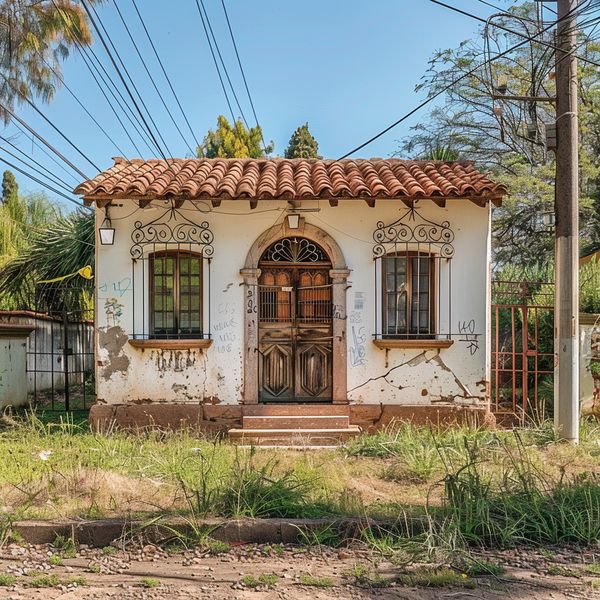The Pros and Cons of Buying a Fixer-Upper
Buying a fixer-upper can be an exciting and potentially rewarding venture for many homebuyers. These properties often come with a lower price tag, and the idea of transforming a neglected house into a dream home can be appealing. However, purchasing a fixer-upper also comes with its own set of challenges and risks. This comprehensive guide explores the pros and cons of buying a fixer-upper, helping you make an informed decision before diving into this type of investment.
What is a Fixer-Upper?
A fixer-upper is a property that requires significant repairs or renovations. These homes are typically sold at a lower price due to their condition and the investment needed to bring them up to standard. While the prospect of buying a fixer-upper can be appealing to those looking to create a personalized space or flip the property for profit, it’s crucial to weigh the potential benefits against the challenges.
Pros of Buying a Fixer-Upper
Lower Purchase Price
One of the main advantages of buying a fixer-upper is the lower initial cost compared to move-in-ready homes. This lower purchase price can be attractive to first-time homebuyers or investors looking to maximize their buying power.
Customization Opportunities
Buying a fixer-upper allows you to customize the home to your liking. From choosing finishes and fixtures to redesigning layouts, you have the opportunity to create a space that reflects your personal style and needs.

Potential for Increased Equity
If you buy a fixer-upper at a low price and invest wisely in renovations, you can potentially increase the property’s value significantly. This increase in equity can provide a good return on investment if you decide to sell the property in the future.
Less Competition
Fixer-uppers often attract less competition from other buyers. Many homebuyers prefer move-in-ready homes, which means you might have a better chance of negotiating a favorable price for a fixer-upper.
Cons of Buying a Fixer-Upper
High Renovation Costs
While the purchase price may be lower, the cost of renovations can add up quickly. Unexpected issues like plumbing or electrical problems can significantly increase the total cost of the project. It’s essential to budget for these expenses before purchasing a fixer-upper.
Unexpected Repairs and Issues
Fixer-uppers can come with unforeseen problems that aren’t immediately apparent during a viewing. These could include structural issues, hidden mold, or outdated wiring. Such surprises can lead to costly repairs and extended timelines.
Time-Consuming Process
Renovating a fixer-upper can be a time-consuming endeavor. Depending on the extent of the renovations needed, it could take several months or even years to complete the project. This extended timeline can be a disadvantage for those looking for a quick move-in.
Need for Specialized Knowledge and Skills
Successfully renovating a fixer-upper often requires a range of skills and knowledge, from understanding construction and design to project management. Hiring the right contractors and managing the renovation process can be challenging for those without prior experience.

Evaluating a Fixer-Upper Property
Before purchasing a fixer-upper, it’s essential to evaluate the property carefully. Consider the following factors:
Assessing the Level of Renovation Required
Not all fixer-uppers are created equal. Some may only need cosmetic updates like new paint and flooring, while others may require extensive renovations, including structural repairs or a complete overhaul of electrical and plumbing systems.
Calculating the Total Cost of Ownership
When considering a fixer-upper, it’s crucial to calculate the total cost of ownership, including the purchase price, estimated renovation costs, and potential carrying costs such as mortgage payments, taxes, and insurance during the renovation period.
Understanding Local Market Conditions
Research the local real estate market to understand whether investing in a fixer-upper is a good idea. Consider factors like neighborhood trends, the potential for appreciation, and demand for updated homes.
Financing Options for Fixer-Uppers
Several financing options are available for those looking to buy a fixer-upper:
FHA 203(k) Loans
The FHA 203(k) loan program allows buyers to finance both the purchase and renovation costs of a fixer-upper in a single mortgage. This option is ideal for those who need additional funds to cover renovation expenses.
Fannie Mae HomeStyle Renovation Loans
The HomeStyle Renovation loan from Fannie Mae also combines the purchase price and renovation costs into one loan. This program offers more flexibility regarding the types of renovations allowed and is suitable for a range of projects.
Personal Loans and Savings
Some buyers may choose to finance renovations with personal loans or savings. This option provides more flexibility in terms of how the funds are used but may come with higher interest rates.
Tips for Buying a Fixer-Upper
To ensure a successful fixer-upper purchase, consider the following tips:
Conduct a Thorough Home Inspection
A detailed home inspection is crucial when buying a fixer-upper. Hire a professional inspector to identify any potential issues and provide an estimate of repair costs.
Set a Realistic Budget and Timeline
Establish a realistic budget that includes a buffer for unexpected expenses. Additionally, set a timeline for the renovation project and prepare for possible delays.
Work with Experienced Contractors
Hiring experienced contractors is essential for a successful renovation. Ensure you choose professionals with a good reputation and experience in similar projects.
Success Stories: Turning a Fixer-Upper into a Dream Home
Many homebuyers have successfully transformed fixer-uppers into beautiful homes. These success stories highlight the potential rewards of taking on such a project, including increased property value and personal satisfaction in creating a customized living space.
Conclusion
Buying a fixer-upper can be a rewarding experience, offering the opportunity to create a personalized home or make a profitable investment. However, it also comes with its own set of challenges, including high renovation costs, unexpected issues, and the need for specialized skills. By carefully evaluating the pros and cons and following the tips outlined in this guide, you can make an informed decision and turn your fixer-upper into a success story.
FAQs
- What is a fixer-upper?
A fixer-upper is a property that requires significant repairs or renovations before it is habitable or up to market standards. - Is buying a fixer-upper a good investment?
It can be, especially if you can purchase the property at a low price and manage renovation costs effectively. The potential for increased equity makes it a popular choice for investors. - What are some common issues with fixer-uppers?
Common issues include outdated plumbing and electrical systems, structural problems, mold, and general wear and tear. - How can I finance a fixer-upper purchase?
Financing options include FHA 203(k) loans, Fannie Mae HomeStyle Renovation loans, personal loans, and savings. - Should I hire a professional for renovations?
Yes, hiring experienced contractors is highly recommended to ensure quality work and avoid costly mistakes.
